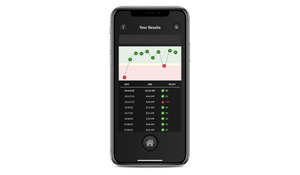Although improving techniques and technologies in patient care dominates much discussion in the healthcare industry, more attention has begun to be paid to the wellness of those providing that care, like physicians, nurses, surgeons, residents, and so on. When we get sick or hurt, we probably don’t give much thought to whether our healthcare providers are fatigued or even ill themselves, yet research shows they often work in spite of illness or fatigue, and fatigue is very common.1
Many healthcare providers work long shifts of more than 12 hours, and the negative effects of shiftwork and long shifts are well understood.2,3 In the healthcare industry, shiftwork fatigue has been connected to an increased risk of errors in patient care. As a result, experts have argued that healthcare workplaces should view the wellness of their providers as equally worthy of attention as the care of its patients, given the causal relationship between the two.4
Some experts have stressed that interventions are necessary to address the impact of fatigue risk on provider wellness and patient care, but they should not limit the autonomy of the healthcare professional.1 Research is limited on whether interventions intended to enhance the wellness of healthcare providers have a positive impact on patient care, yet there appears to be significant promise.
Predictive Safety’s AlertMeter® or PRISM platforms may provide healthcare environments with a non-invasive tool that can help manage fatigue risk for physicians, nurses, residents, and other healthcare providers by providing a measure of alertness or fatigue risk without diminishing personal autonomy. In fact, awareness of one’s alertness or fatigue level may enhance autonomy by influencing him or her to exercise countermeasures, like food, rest, physical movement, coffee or tea, and so on, to improve alertness.
If your institution is interested in establishing alertness testing’s value in healthcare environments, Predictive Safety would be enthusiastic to discuss the possibilities.
More Resources:
6 Reasons Why Your Company Needs to Manage Work Fatigue and Impairment (Part 1)
6 Reasons Why Your Company Needs to Manage Work Fatigue and Impairment (Part 2)
3 Things Workers Should Know About Shift Worker Fatigue, From a Doctor
Managing Safety through Worker Fatigue Data
10 Steps in a Fatigue Management Plan
Circadian Rhythm and Shift Work - When the Time Changes
The Factors of Fatigue and the Fatigue Assessment Scale
3 Ways Sleep Sleep Apnea at Work is Costing Your Business (And How To Fix It)
4 Steps to Fatigue Risk Management - a Fatigue Risk Management Template
6 Fatigue Countermeasures
Fatigue in the Workplace: Myths vs. Realities
Work Fatigue Symptoms
Predictive Safety Featured On the WorkSAFE Podcast: Tech Designed to Stop Fatigue Impairment Risk in Its Tracks
The Science of Fatigue at Work
Real-Time Fatigue Monitoring & Management Software
References-
Wallace, J.E., Lemaire, J.B., & Ghali, W.A. (2009). Physician wellness: a missing quality indicator. Lancet 374(9702): 1714–21.
-
Åkerstadt, T. (1990). Psychological and psychophysiological effects of shift work. Scandinavian Journal of Work, Environment & Health 16(Suppl 1): 61–73.
-
Caruso, C.C. (2013). Negative impacts of shiftwork and long work hours. Rehabilitation Nursing39(1): 16–25. doi:10.1002/rnj.107
-
Caruso, C.C. (2010). Occupational health and safety for nurses benefits patients, too. Rehabilitation Nursing 35(5): 176+.



